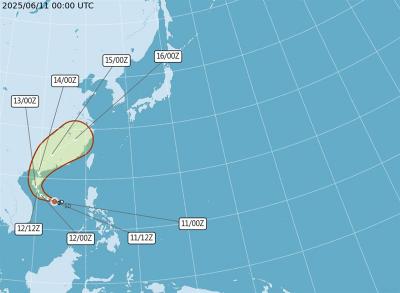Democratic Progressive Party (DPP) Secretary-General Joseph Wu (吳釗燮) on Monday told US defense industry officials that under a DPP administration, Taiwan’s indigenous defense industry would expand and deepen.
He said that, as a result of DPP encouragement, there were an unprecedented number of senior executives from Taiwan’s industries — 30 from 19 different companies — attending the 14th annual US-Taiwan Defense Industry Conference in Williamsburg, Virginia.
“They are the team representing a national determination to defend our nation and represent our vision to move our defense forward,” he told the conference.
Wu said the industrialists were from the aviation, shipbuilding and cybersecurity sectors.
He said that some defense items were politically sensitive and difficult for the US to sell and thus, “we would like to have the confidence of producing them in Taiwan with the necessary assistance and support of the US.”
Wu urged Taiwanese companies and the US to discuss in side meetings and “learn how we can find good business opportunities together.”
He said China’s growing military might looms over the Taiwan Strait.
“We do not want to see regional tension evolve into military conflict, we do not want Taiwan to be engulfed in military conflict should it occur and we certainly do not want our vulnerability to attract aggression,” Wu said.
He said Taiwan’s capability or vulnerability deserved a deeper look.
“Even though the cross-strait policies pursued by the current Taiwanese administration are said to have reduced tensions with China, the threat is nonetheless increasing,” Wu said.
He said that with less investment in defense and an unsuccessful attempt to change the recruitment system, Taiwan is more vulnerable than ever.
“The best way for Taiwan to prevent a war from being initiated against it would be for us to acquire credible deterrent capabilities,” Wu said. “We want to strengthen ourselves militarily to maintain cross-strait peace, and if a conflict were unfortunately to take place, we would have the necessary means to survive.”
Wu said that if the DPP returns to power in next year’s Jan. 16 presidential election, it plans to improve the nation’s naval, airborne and cyberdefense capabilities.
If the US will not sell needed weapons, Wu said, “going indigenous is the only meaningful alternative.”
However, Taiwan has an edge in the cyberdomain, which is not being properly and seriously used by the defense establishment.
Wu said that DPP presidential candidate Tsai Ing-wen (蔡英文) had presided over a series of intense discussions aimed at preparing the future of Taiwan’s defense industry.
He said that he was more confident than ever that Taiwan could count on its indigenous industry.
Wu added that he was particularly excited about Taiwan’s potential in cyberdefense.
Senior executives from cybersecurity firm Trend Micro have met with DPP military experts and plan to upgrade some products for military use, Wu said.
Wu said that Taiwanese talent could be relied upon for the nation’s cyberdefense.

A magnitude 6.4 earthquake struck off the coast of Hualien County in eastern Taiwan at 7pm yesterday, the Central Weather Administration (CWA) said. The epicenter of the temblor was at sea, about 69.9km south of Hualien County Hall, at a depth of 30.9km, it said. There were no immediate reports of damage resulting from the quake. The earthquake’s intensity, which gauges the actual effect of a temblor, was highest in Taitung County’s Changbin Township (長濱), where it measured 5 on Taiwan’s seven-tier intensity scale. The quake also measured an intensity of 4 in Hualien, Nantou, Chiayi, Yunlin, Changhua and Miaoli counties, as well as

Taiwan is to have nine extended holidays next year, led by a nine-day Lunar New Year break, the Cabinet announced yesterday. The nine-day Lunar New Year holiday next year matches the length of this year’s holiday, which featured six extended holidays. The increase in extended holidays is due to the Act on the Implementation of Commemorative and Festival Holidays (紀念日及節日實施條例), which was passed early last month with support from the opposition Chinese Nationalist Party (KMT) and Taiwan People’s Party. Under the new act, the day before Lunar New Year’s Eve is also a national holiday, and Labor Day would no longer be limited

The first tropical storm of the year in the western North Pacific, Wutip (蝴蝶), has formed over the South China Sea and is expected to move toward Hainan Island off southern China, the Central Weather Administration (CWA) said today. The agency said a tropical depression over waters near the Paracel and Zhongsha islands strengthened into a tropical storm this morning. The storm had maximum sustained winds near its center of 64.8kph, with peak gusts reaching 90kph, it said. Winds at Beaufort scale level 7 — ranging from 50kph to 61.5kph — extended up to 80km from the center, it added. Forecaster Kuan Hsin-ping

COMMITMENTS: The company had a relatively low renewable ratio at 56 percent and did not have any goal to achieve 100 percent renewable energy, the report said Pegatron Corp ranked the lowest among five major final assembly suppliers in progressing toward Apple Inc’s commitment to be 100 percent carbon neutral by 2030, a Greenpeace East Asia report said yesterday. While Apple has set the goal of using 100 percent renewable energy across its entire business, supply chain and product lifecycle by 2030, carbon emissions from electronics manufacturing are rising globally due to increased energy consumption, it said. Given that carbon emissions from its supply chain accounted for more than half of its total emissions last year, Greenpeace East Asia evaluated the green transition performance of Apple’s five largest final